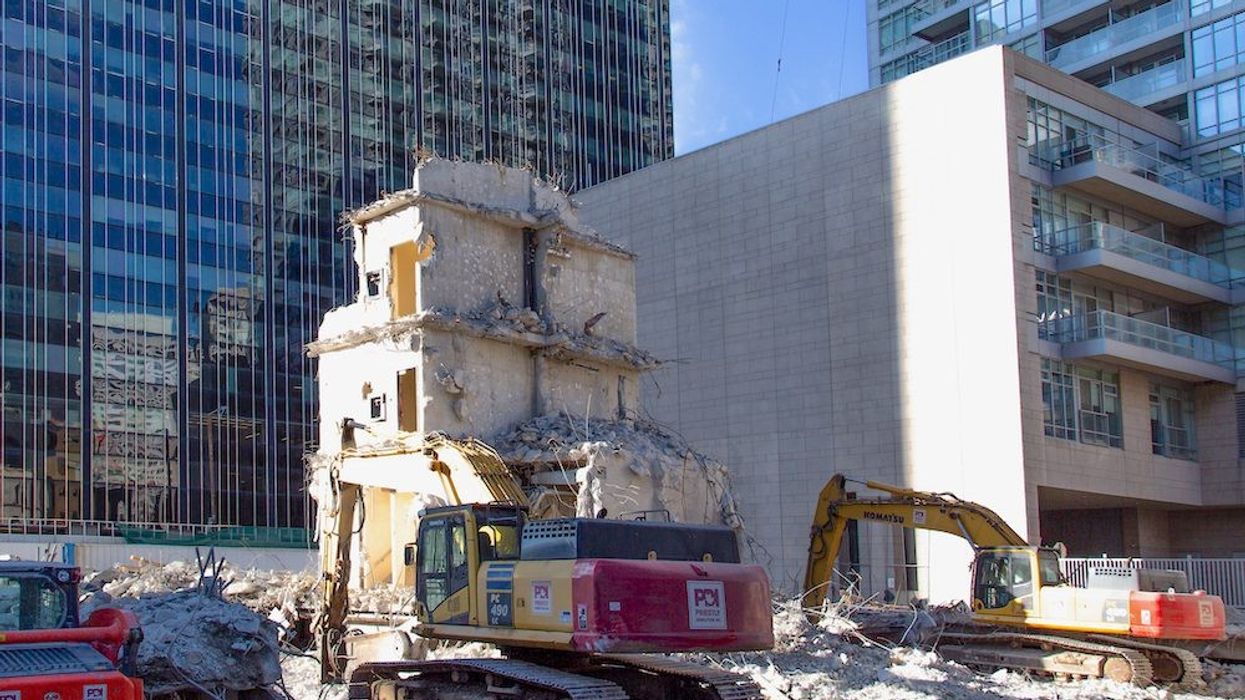The City of Toronto is raising red flags around a proposed provincial policy that could limit the City's ability to require replacement rental units.
Under the existing bylaw, Toronto requires that any developer planning to demolish rental buildings with six or more units must replace the existing units with ones of comparable size and price and offer those to existing tenants. They must also provide comparable alternative housing for any necessary relocation, and compensation for additional costs relating to relocation.
A new report from Toronto's Chief Planner and Executive Director of City Planning, going before City Council this week, however, warns of a possible weakening of this policy thanks to the Ontario Government's proposed Bill 97. The bill would allow the Minister of Municipal Affairs and Housing to impose limits and conditions on municipal rental replacement requirements, and to prescribe the amount of compensation to be paid to tenants, and in what circumstances.
"These new provisions create uncertainty around the future implementation of Toronto's existing rental demolition bylaw and rental replacement policy, including for applications currently under review," the report reads.
The City's rental replacement bylaw, implemented in 2007, has "successfully secured the replacement of approximately 5,000 rental units," the report says. "Without this critical policy framework, it is likely that significantly more rental units would have been demolished and not replaced due to new developments. This would have negatively impacted both the supply of rental units and availability of affordable rental units."
The report goes on to acknowledge that the proposed bill provides little detail on what the Minister's intended application of the new regulatory powers would be, but raised concerns about several possibilities, including: allowing replacement rental units to be significantly smaller than the units they are replacing, limiting the City's ability to restrict the rents for replacement units, reducing tenant compensation, and allowing owners to provide cash-in-lieu of replacement units.
Currently, there are 73 active rental housing demolition applications, with more than 3,440 units that are subject to the City's rental replacement policy. The report also notes that Toronto has seen an increase in the number of rental housing demolition applications, with each application ranging from six to over 250 units.
"From 2018 to 2022, the City approved nearly 2,500 replacement units at below-market rents (i.e., meeting the City’s definition of affordable or mid-range rents)," the report reads. "Without the ability to regulate replacement rents, this existing stock of housing affordable to low- and moderate-income households would have been lost."
In Toronto, replacement units must be at least 100% of the total gross floor area of the existing unit. If those minimums were removed, the report says, it could leave families with homes that are "unsuitable to their needs."
"For example, the Minister's regulation would allow the home of a family of four living in a two-bedroom 900-sq.-ft unit to be demolished and replaced with a two-bedroom 650-sq.-ft unit with smaller bedrooms and living areas," the report reads. "This loss in square footage could result in the family no longer having enough space to move their existing furniture back into or a bedroom big enough for their two children."
The report's authors recommend that City Council call on the Province to not advance any regulations for municipal rental replacement bylaws until they've consulted with the City and stakeholders, as well as ensure any rental demolition applications that have already been submitted to the City be reviewed under the existing bylaws.
For units that are demolished, the report urges the Province to continue allowing municipalities to decide the minimum size requirements for replacement units, and to ensure a consistent approach is used for compensation that is reflective of housing market conditions.
The Province is continuing to seek feedback on rental replacement bylaws via its Ontario Regulatory Registry until May 21.





















